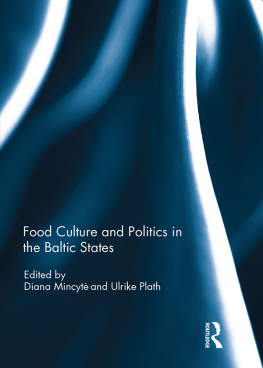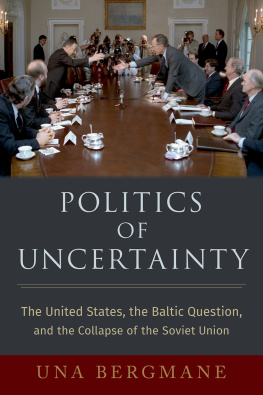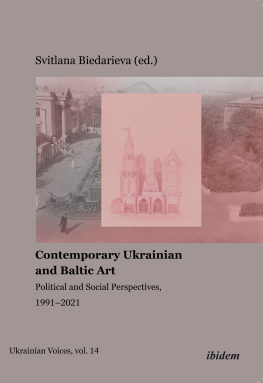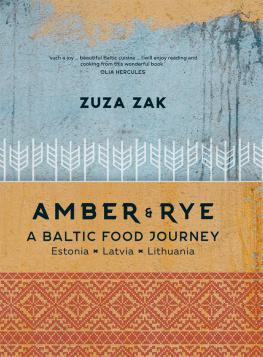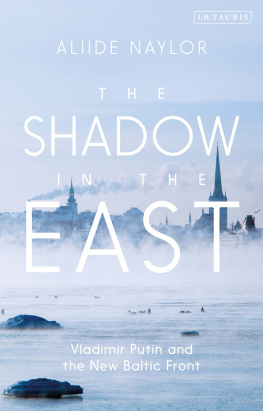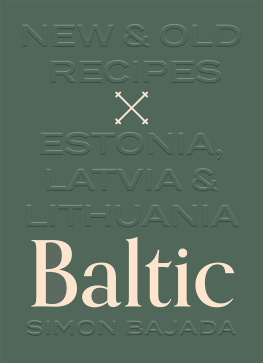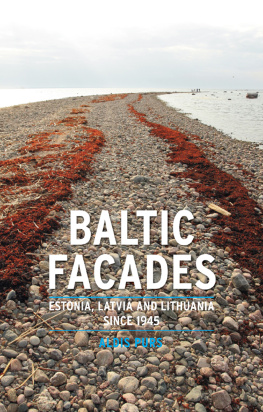Food Culture and Politics in the Baltic States
This book focuses on food culture and politics in three Baltic states: Estonia, Latvia, and Lithuania. In popular and scholarly writings, the Baltic states are often seen as a meat-and-potatoes kind of place, inferior to sophisticated cuisines of the West and exotic diets in the East. Such views stem from the long intellectual tradition that focuses on political and cultural centers as sources of progress. But, as a new generation of writers has argued, in order to fully grasp the ongoing cultural and political changes, we need to shift the focus from capital cities such as Paris, Berlin, Rome, or Moscow to everyday life in borderland regions that are primary arenas where such transformations unfold. Building on this perspective, chapters featured in this book examine how identities were negotiated through the implementation of new food laws, how tastes were reinvented during imperial encounters, and how ethnic and class boundaries were both maintained and transgressed in Baltic kitchens over the course of the twentieth and early twenty-first centuries. In so doing, the book not only explores culinary practices across the region, but also offers a new vantage point for understanding everyday life and the entanglement between nature and culture in modern Europe. This book was originally published as a special issue of the Journal of Baltic Studies.
Diana Mincyt is an Assistant Professor of Sociology in New York City College of Technology of the City University of New York. The recipient of numerous grants and fellowships, she publishes on social and environmental dimensions of agro-food systems both in and outside of post-socialist East Europe.
Ulrike Plath is a Professor of German culture and history in the Baltic region at Tallinn University and a senior researcher at the Under and Tuglas Literature Centre of the Estonian Academy of Sciences. She has published in the areas of Baltic cultural history of the Enlightenment and Baltic foods, gardening, and environmental history.
Food Culture and Politics in the Baltic States
Edited by
Diana Mincyt and Ulrike Plath
First published 2017
by Routledge
2 Park Square, Milton Park, Abingdon, Oxon, OX14 4RN, UK
and by Routledge
711 Third Avenue, New York, NY 10017, USA
Routledge is an imprint of the Taylor & Francis Group, an informa business
2017 Association for the Advancement of Baltic Studies
All rights reserved. No part of this book may be reprinted or reproduced or utilised in any form or by any electronic, mechanical, or other means, now known or hereafter invented, including photocopying and recording, or in any information storage or retrieval system, without permission in writing from the publishers.
Trademark notice: Product or corporate names may be trademarks or registered trademarks, and are used only for identification and explanation without intent to infringe.
British Library Cataloguing in Publication Data
A catalogue record for this book is available from the British Library
ISBN 13: 978-1-138-70293-6
Typeset in Perpetua
by diacriTech, Chennai
Publishers Note
The publisher accepts responsibility for any inconsistencies that may have arisen during the conversion of this book from journal articles to book chapters, namely the possible inclusion of journal terminology.
Disclaimer
Every effort has been made to contact copyright holders for their permission to reprint material in this book. The publishers would be grateful to hear from any copyright holder who is not here acknowledged and will undertake to rectify any errors or omissions in future editions of this book.
Contents
Diana Mincyt and Ulrike Plath
Guntra A. Aistara
Renata Blumberg
Ester Bardone and Piret Pungas-Kohv
Leena Kurvet-Kosaar
Lani Trenouth and Talis Tisenkopfs
Ida Harboe Knudsen
Kadri Tr and Karl Stern
The chapters in this book were originally published in the Journal of Baltic Studies, volume 46, issue 3 (September 2015). When citing this material, please use the original page numbering for each article, as follows:
Introduction: Exploring Modern Foodways: History, Nature, and Culture in the Baltic States
Diana Mincyt and Ulrike Plath
Journal of Baltic Studies, volume 46, issue 3 (September 2015) pp. 275281
Good, Clean, Fair and Illegal: Paradoxes of Food Ethics in Post-Socialist Latvia
Guntra A. Aistara
Journal of Baltic Studies, volume 46, issue 3 (September 2015) pp. 283298
Geographies of Reconnection at the Marketplace
Renata Blumberg
Journal of Baltic Studies, volume 46, issue 3 (September 2015) pp. 299318
Changing Values of Wild Berries in Estonian Households: Recollections from an Ethnographic Archive
Ester Bardone and Piret Pungas-Kohv
Journal of Baltic Studies, volume 46, issue 3 (September 2015) pp. 319336
Is that Hunger Haunting the Stove?
Leena Kurvet-Kosaar
Journal of Baltic Studies, volume 46, issue 3 (September 2015) pp. 337353
The Evolution of Household Foodscapes over Two Decades of Transition in Latvia
Lani Trenouth and Talis Tisenkopfs
Journal of Baltic Studies, volume 46, issue 3 (September 2015) pp. 355375
The Making of the Consumer? Risk and Consumption in Europeanized Lithuania
Ida Harboe Knudsen
Journal of Baltic Studies, volume 46, issue 3 (September 2015) pp. 377391
Atlantic Herring in Estonia: In the Transverse Waves of International Economy and National Ideology
Kadri Tr and Karl Stern
Journal of Baltic Studies, volume 46, issue 3 (September 2015) pp. 393408
For any permission-related enquiries please visit:
http://www.tandfonline.com/page/help/permissions
Guntra A. Aistara holds a PhD from the University of Michigans School of Natural Resources and Environment. She is an environmental anthropologist, whose research interests include organic agriculture movements, agrobiodiversity and seed sovereignty, the political ecology of small farmers struggles over the control of land and seeds in the face of free-trade agreements, and socioecological resilience of local food systems. She is an Assistant Professor in the Department of Environmental Sciences and Policy at the Central European University in Budapest, and was an Agrarian Studies fellow at Yale University from 2014 to 2015.
Ester Bardone is a Lecturer in Ethnology at the Institute for Cultural Research and Fine Arts, University of Tartu, where she received a PhD in Ethnology. Her research interests include rural tourism, small-scale rural entrepreneurship, and heritage production in Estonia, and changes in Estonian food culture.
Renata Blumberg received her PhD in Geography from the University of Minnesota in June 2014. She is currently an Assistant Professor in the Department of Nutrition and Food Studies at Montclair State University. Thus far, she has studied alternative food networks in Latvia, Lithuania and the United States, and has paid particular attention to their sociospatial dimensions.
Ida Harboe Knudsen is a postdoctoral fellow at the University of Aarhus, Denmark, a position financed by the Danish Independent Research Council, Culture and Communication (Det Frie Forskningsrd, Kultur og Kommunikation [FKK]). She obtained her PhD from the Max Planck Institute for Social Anthropology in Halle, Germany, in 2010, and has written on topics including agriculture, EU enlargement, and dairy production, as well as on illegal work and mafia affiliations in Lithuania.

